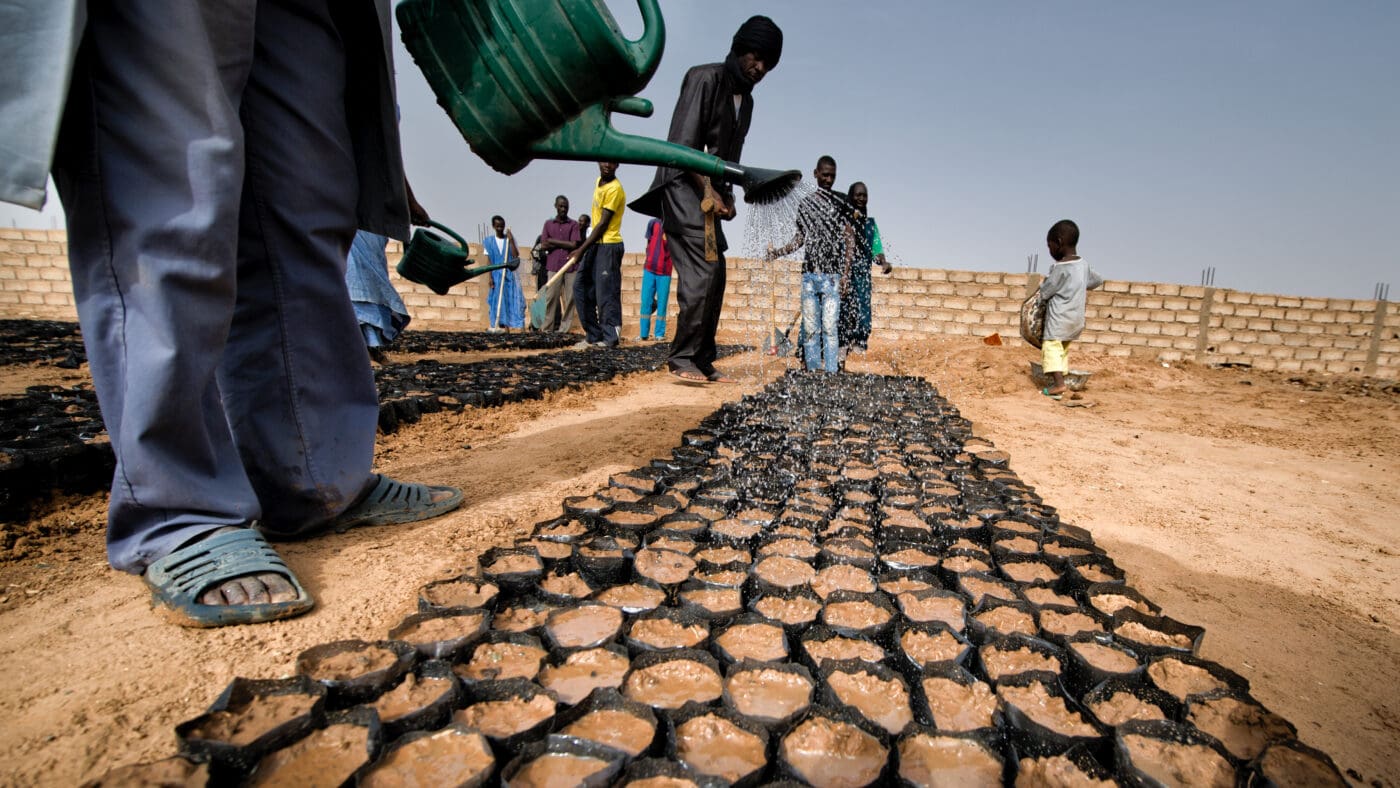
Mauritania
Although it has made significant improvements in reducing poverty and chronic malnutrition, Mauritania’s rapidly growing population still faces major challenges including hunger, malnutrition, gender inequality and land degradation.
Vulnerable to Climate
Just under one quarter of the population lives in poverty. Nearly 1 million people were epxected to be severely hungry during the peak of the June – August 2022 lean season.
With 90% of agricultural production subsistence-based, large numbers of people are vulnerable to the effects of events such as droughts, floods and locust invasions, all of which are made worse by rapid soil erosion and desertification due to climate change. A series of major droughts in 2011, 2014, 2017 and 2018 weakened communities and damaged ecosystems, forcing many to cope by eating less or selling livestock at less than its market value.
Mauritania continues to host the largest number of Malian refugees in West Africa. The security conditions in Mali remain volatile, resulting in a continuous refugee influx to Mauritania. As of June 2022, 79,610 refugees were registered by UNHCR in and around the Mbera camp.
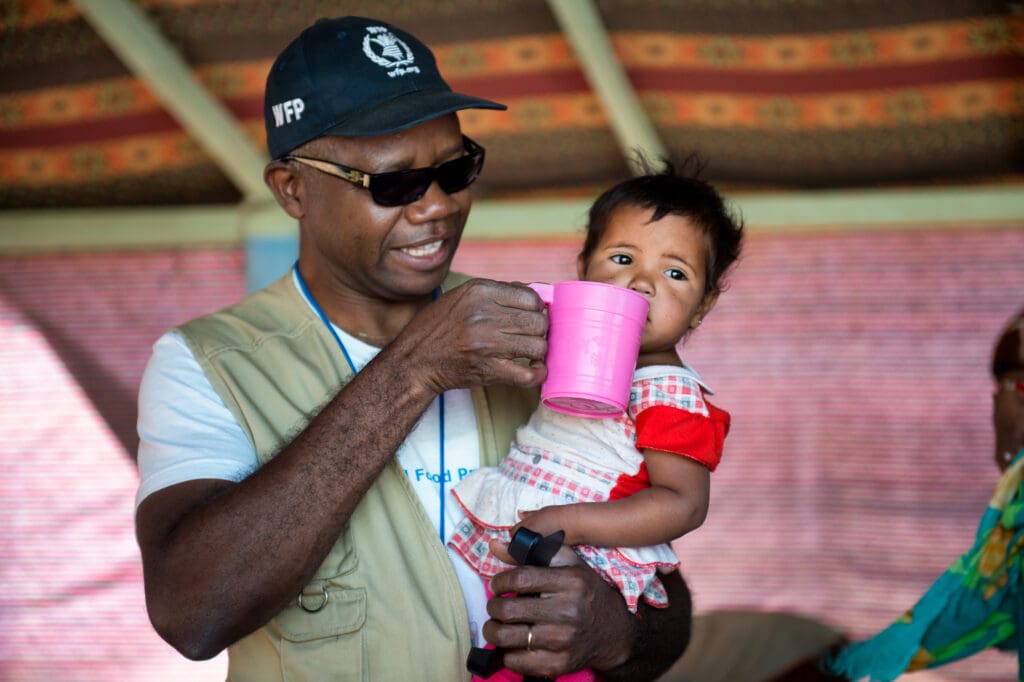
WFP’s Work in Mauritania
WFP has been working in Mauritania since 1964, providing relief assistance, livelihood support and humanitarian air services. Today, WFP is addressing the root causes of hunger through programs including:
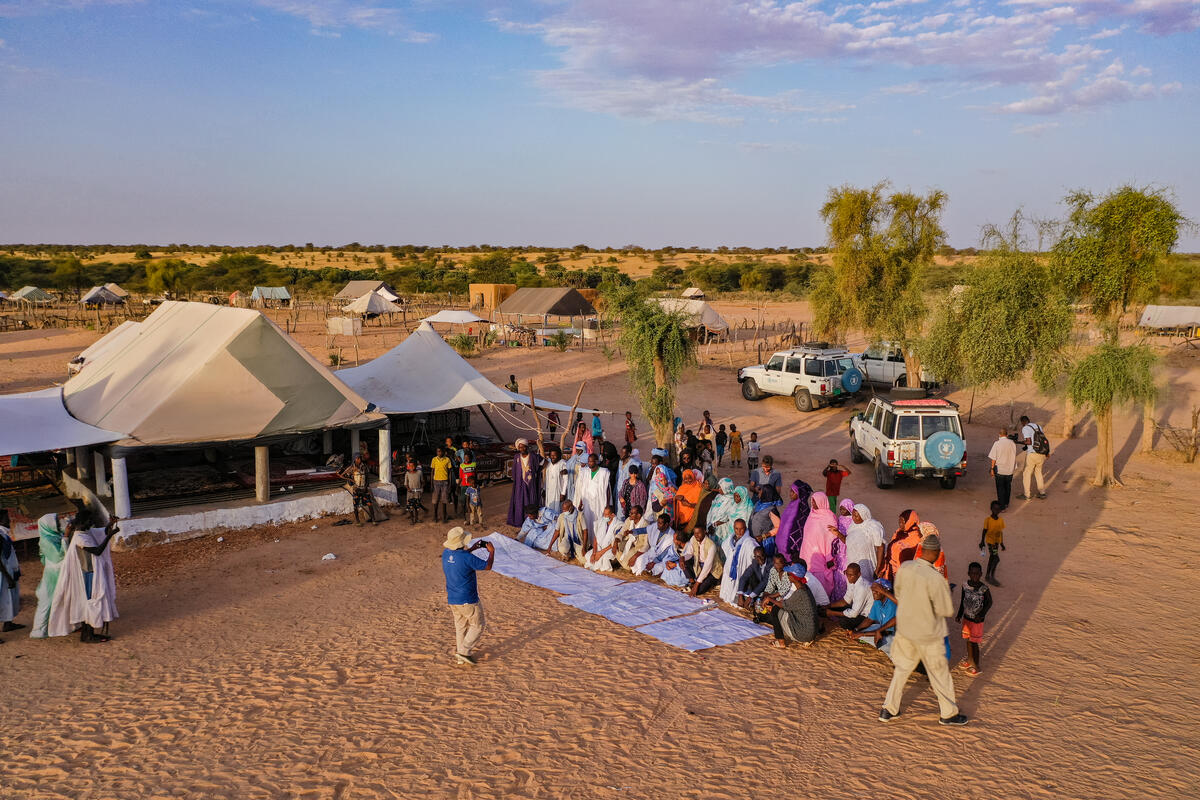
WFP ensures that crisis-affected people have enough food. The agency assists assisting vulnerable, hungry Mauritanian households during the lean season and 65,000 Malian refugees all year around through general food assistance, school meals and nutrition support. In the refugee camp, WFP is gradually shifting towards more sustainable and livelihood-oriented assistance through the promotion of refugee self-reliance.

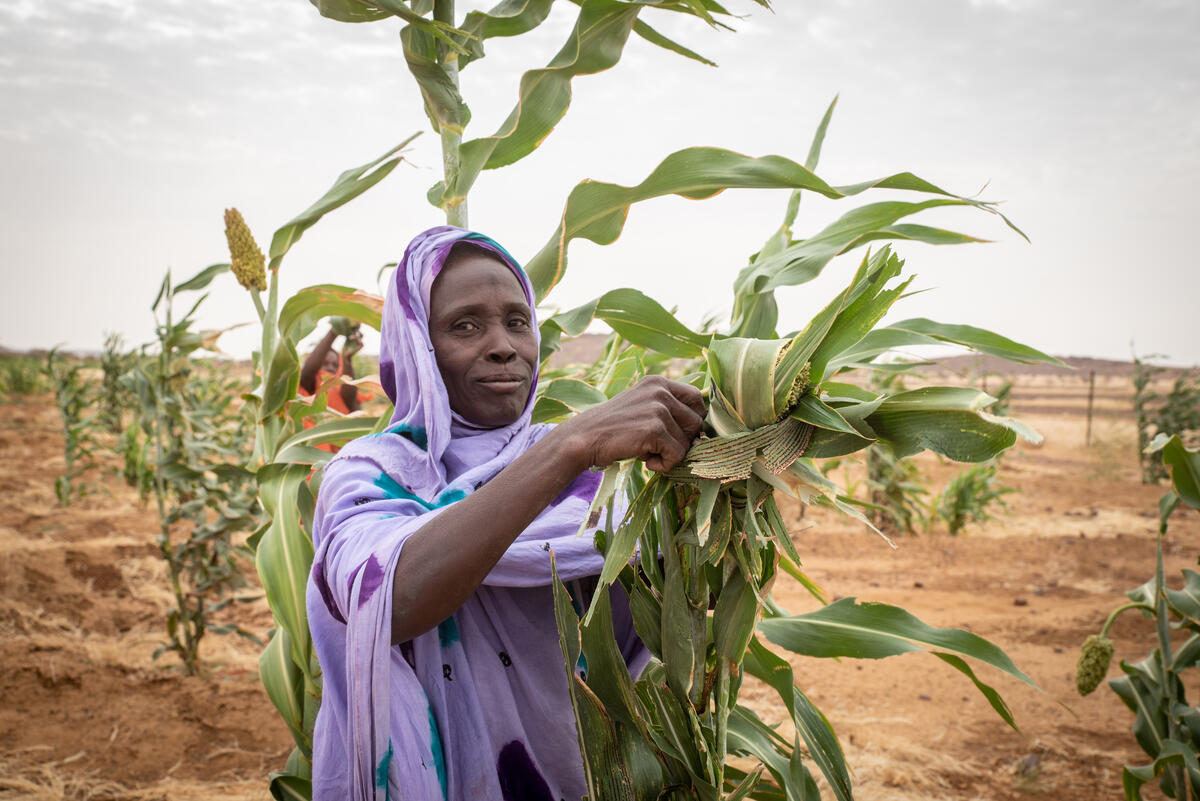
WFP helps communities adapt to climate change and reduce exposure to natural shocks. The agency develops sustainable food production systems so that livelihoods are more resilient to the effects of climate-related crisis. WFP supports small-scale farmers to sustainably increase their crop production, reduce post-harvest losses and participate in markets.

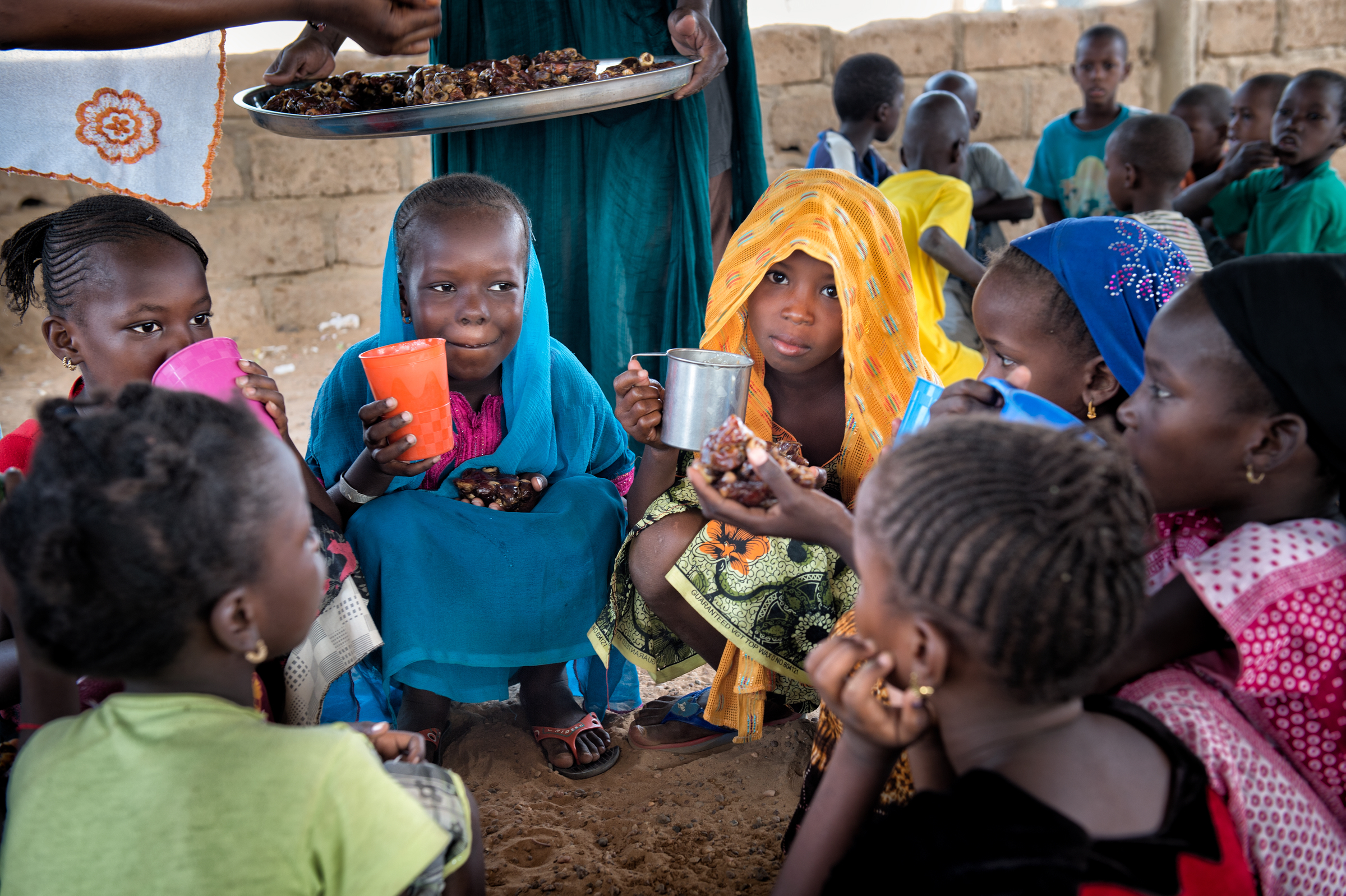
In partnership with the Mauritanian government, WFP aims to distribute daily morning snacks and lunches to 50,000 primary schoolchildren, especially in rural areas where school attendance and retention rates are low and hunger, malnutrition and poverty are high. Additional services are delivered in schools including communication on nutrition, hygiene and family practices.
